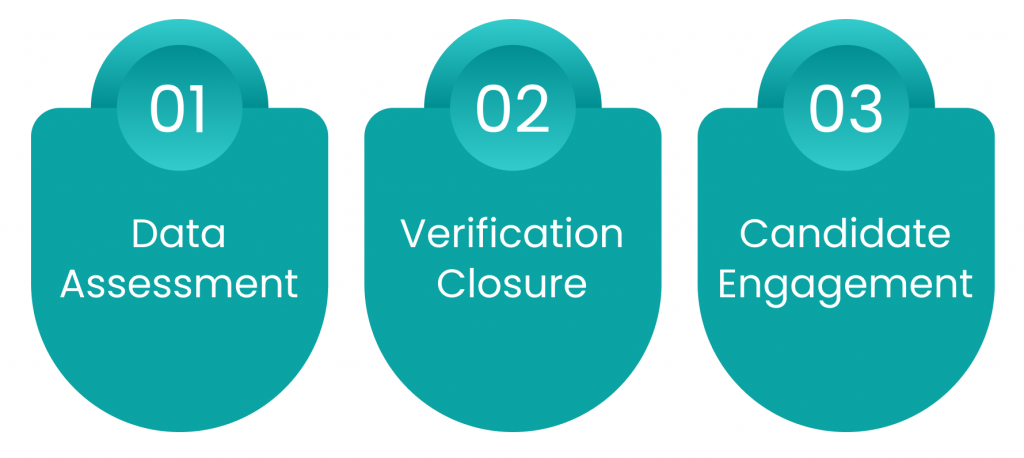Table of Contents
ToggleBusinesses across industries rely on accurate customer data for seamless operations, regulatory compliance, and fraud prevention. A crucial aspect of identity verification is confirming the authenticity of a customer’s address. Traditionally, this was a manual process involving physical visits—time-consuming, costly, and prone to inefficiencies. However, advancements in technology have revolutionized address verification, making it faster, more reliable, and scalable.
Read more: Address Verification APIs: Streamline Onboarding, Enhance Contactability and more!
Understanding Digital Address Verification
Digital Address Verification (ADV) is the process of electronically verifying an individual’s address using digital methods. It leverages an online interface where individuals submit address details, upload necessary documentation, and undergo verification through automated checks. Organizations can initiate ADV through various modes, including self-registration, bulk uploads, API integrations, and manual entry by an operations team.
At OnGrid, ADV is conducted seamlessly through its platform, where individual records are created in the client Community via:
- Self-registration after an invitation from the Community user
- “Add New” functionality used by an HR executive
- Pre-filled Background Verification (BGV) forms signed by candidates
- Bulk uploads via Excel
- API-driven onboarding
- Manual input by an OnGrid operations executive
Types of Digital Address Verification
OnGrid’s ADV covers both:
- Permanent Address Digital Verification (PADV)
- Local/Current Address Digital Verification (LADV)
These verifications ensure authenticity without physical visits, significantly improving efficiency.
How Digital Address Verification Works

OnGrid follows a structured process—data assessment, verification closure, and candidate engagement—to ensure seamless address validation.
1. Data Assessment
The operations team evaluates the provided details via email, portal, or API. Based on the analysis, records are categorized as:
- Data Sufficient – The address is complete, and the contact number is valid.
- Data Insufficient – The address is incomplete, or the contact number is incorrect (e.g., incorrect digit count). In such cases, insufficiency is raised, and the user is notified for additional information.
2. Verification Closure
A verification request is closed if:
- The required details are not provided despite multiple follow-ups.
- The client decides not to proceed.
3. Candidate Engagement
For data-sufficient cases, the candidate receives an SMS with a secure link to submit the required details. The submission can be completed by:
- The candidate
- A relative or friend residing at the provided address
The submission requires:
- Respondent’s name, contact number, and ID proof
- Relationship with the candidate
- Selfie and ID proof photo
- Address proof photo
- Short home video and images
This streamlined approach ensures robust, fraud-proof verification.
Key Benefits of Digital Address Verification
1. Fraud Prevention & Risk Mitigation
Industries like financial services, e-commerce, and background verification face risks of fake addresses, identity theft, and fraudulent applications. Digital Address Verification ensures that submitted addresses are genuine and linked to rightful individuals, mitigating fraud.
2. Compliance with Regulatory Norms
Regulatory bodies require address verification for Know Your Customer (KYC) and Anti-Money Laundering (AML) compliance. Financial institutions, for example, must adhere to RBI and SEBI guidelines. Digital ADV automates verification, reducing errors and maintaining audit-ready records.
3. Faster Onboarding & Improved User Experience
Traditional address verification methods take days or weeks, causing onboarding delays. Digital ADV completes the process within minutes, enhancing customer and employee onboarding experiences while eliminating manual inefficiencies.
4. Cost-Effectiveness & Scalability
Physical address verification is expensive, requiring logistics and workforce management. Digital ADV eliminates these costs, offering scalable, real-time validation for businesses operating across multiple locations.
5. Real-Time Data Accuracy
Manual processes are prone to human errors. Digital ADV enhances accuracy with AI-powered data validation, geotagging, and automated checks, ensuring up-to-date information and reducing false positives.
6. Security & Data Privacy
Handling sensitive customer data requires strict security measures. Digital ADV platforms like OnGrid ensure data encryption, consent-driven verification, and compliance with data protection laws, safeguarding privacy.
Use Cases of Digital Address Verification
1. Financial Institutions & Lending Platforms
Banks, NBFCs, and fintech firms rely on ADV for KYC compliance, loan approvals, and credit verification. Digital ADV accelerates approvals while minimizing fraud risks.
2. Background Verification & Employee Onboarding
Organizations conducting pre-employment background verification (BGV) use digital ADV to validate permanent and local addresses, reducing onboarding timelines.
3. E-Commerce & Logistics
E-commerce companies verify addresses to prevent return fraud and failed deliveries, improving efficiency and cost savings.
4. Insurance Providers
Insurers use ADV for policyholder verification, fraud detection, and claims processing, ensuring accurate premium calculations.
5. Telecom & Utility Providers
Telecom and utility providers verify addresses for new customer registrations, KYC validation, and fraud prevention, streamlining onboarding.
How OnGrid Enhances Digital Address Verification
As India’s leading digital verification platform, OnGrid offers fast, secure, and scalable ADV solutions tailored for diverse industries. OnGrid’s platform provides:
- Real-Time Address Validation – Automation for faster verification.
- Seamless API Integration – Easy integration into existing onboarding workflows.
- PAN-India Coverage – Verification across the nation, including Tier 1, 2, and 3 cities.
- Customizable Verification Templates – Tailored parameters to meet business needs.
Secure & Compliance-Ready – Data encryption, consent-driven processes, and adherence to regulatory norms ensure end-to-end security.
Conclusion
Digital Address Verification is no longer an optional process—it’s a necessity for businesses to prevent fraud, ensure compliance, and enhance operational efficiency. As industries increasingly adopt digital transformation, leveraging advanced ADV solutions like OnGrid’s helps organizations verify addresses securely, accurately, and cost-effectively.
If your business is looking to optimize its address verification process, OnGrid’s Digital Address Verification solution provides the perfect blend of security, accuracy, and convenience.





Leave a Reply